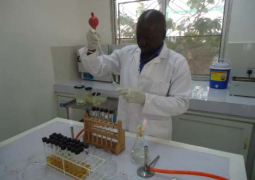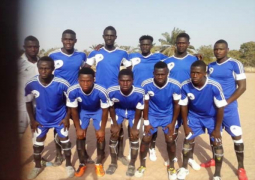Mr. Sheikh Tijan Sosseh, the Project Co-ordinator of Africa Emergency Locust in the
According to him, about 80 percent of the Gambian population depends on crop production for consumption. Noting that with the intervention of locust, it can cause food insecurity and even economic breakdown of a country.
In an interview with this paper, Mr. Sosseh said the project is a sub-regional project funded by the World Bank, and supplemented by the governments of its seven-member countries, namely
According to him, before the establishment of the locust project few years ago, there was a locust invasion in the country. He said by the time the agricultural pest management was controlled, the project came into being and started mitigating the effects and damages caused to crops and natural vegetation.
Mr. Sosseh stated that a crop lost assessment was conducted and as a result, the study was able to identify that 230 communities were hard hit by the locust, culminating to high losses of crops, fruit trees, and vegetable crops.
He revealed that since the inception of the project, over 5000 farmers, 900 military officers and 300 extension workers were trained on locust management countrywide.
He cited the construction of pest monitoring offices, pesticides stores and national plan protection residue laboratories and provision of two sprayer air crafts, which he said were commissioned by President Jammeh for Arial intervention.
He added that locusts are presently in
"So we should prepare and stand by in case of anything", he stated, adding that in some countries, it has been ratified in parliament that upon the phasing out of the project, it should be changed to a national unit for locust control.





